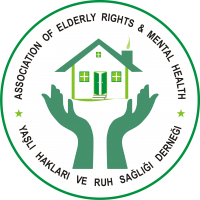Love doesn’t diminish with age, neither should human rights
Love transcends language, religion, race, gender, sexual orientation, disability and age. Many of us look at our parents and grandparents in awe as they celebrate decades together and care for each other, with the same love as their first days together.
For better, for worse, in sickness and in health, they have suffered conflicts, war, migration, heartache, poverty and loss. Throughout all this our elders cared for us and each other. They fought for us, they fed us and protected us though their most difficult days. They contributed so much for this country and laid the foundations for us.
In these difficult times, they even cared for their elderly with their own means. They were shining representatives of the warm, family-oriented Cypriot culture.
So why is it then, that in North Cyprus, we don’t seem to love them back?
Society has changed, living costs are high, both spouses work in order to get by.
Also, the taboo of outsourcing professional elderly care instead of care by family members is slowly declining. Despite the changing society and population, social policy has not caught up with these changes.
So, how much do we love our elderly?
Let’s measure our love against the United Nations Principles for Older Persons: ‘independence’, ‘participation’, ‘care’, ‘self-fulfilment’, and ‘dignity’.
Independence:
- Do we provide them access to quality support and care; adequate food, water, shelter, clothing and health care? Not enough.
- Do we provide them with environments that are safe and adaptable to personal preferences and changing capacities, such as safe pavements, disabled-friendly public spaces, elderly-friendly public transport? No.
- Do we have legal, regulated, accessible and quality domestic care services allowing them to stay in their home? No.
Participation:
- Do we integrate them in society, allowing them to participate actively in forming and implementing policies that directly affect their well-being? No.
- Do we provide them opportunities for service to the community in positions appropriate to their interests and capabilities? No.
Care:
- Do we provide older persons with family and community care and protection in accordance with our society’s system of cultural values? Not enough.
- Do we give them access to health care to help them to maintain or regain the optimum level of physical, mental and emotional well-being and to prevent or delay the onset of illness? No.
- Do we provide them access to social and legal services to enhance their autonomy, protection and care? No.
- Do we provide them appropriate levels of institutional care providing protection, rehabilitation and social and mental stimulation in a humane and secure environment? No.
- Are they able to enjoy human rights and fundamental freedoms when residing in any shelter, care or treatment facility, including full respect for their dignity, beliefs, needs and privacy and for the right to make decisions about their care and the quality of their lives? No.
Self-fulfilment:
- Are they able to pursue opportunities for the full development of their potential? No.
- Do we provide them access to the educational, cultural, spiritual and recreational resources of society? Not enough.
Dignity:
- Are they able to live in dignity and security and be free of exploitation and physical or mental abuse? No.
- Are older persons treated fairly regardless of age, gender, racial or ethnic background, disability or other status, and be valued independently of their economic contribution? No.
This is the grim picture of elderly rights right now in North Cyprus.
As the Association of Elderly Rights and Mental Health, we reiterate our call for the following:
- The passing of a new care home regulatory law that will set the standards for the care homes and the enforcement of this law,
- Initiating new government policies to support the development of the elderly care sector in the TRNC, with incentives for entrepreneurs to build facilities for elderly care, such as nursing homes, assisted living facilities, retirement homes, etc.,
- Provide training opportunities for the elderly caregivers in collaboration with the university geriatric departments,
- Provide access to domestic care via legal, transparent and accessible means so that anyone who is ill, vulnerable or has mobility issues can benefit from qualified carers/nurses, visiting the patient at their home,
- Provide social support for non-Turkish speaking vulnerable elderly as well as multi-lingual staff for care homes,
- Provide access to long term care homes, where vulnerable or terminally ill patients admitted to a care institute are treated with dignity and respect. Care homes need to be accessible, regulated, sustainable, affordable, welcoming and friendly.
A kiss on their hand on a visit once or twice a year is not enough. If we really love our elderly, we should protect their rights.


 TR
TR